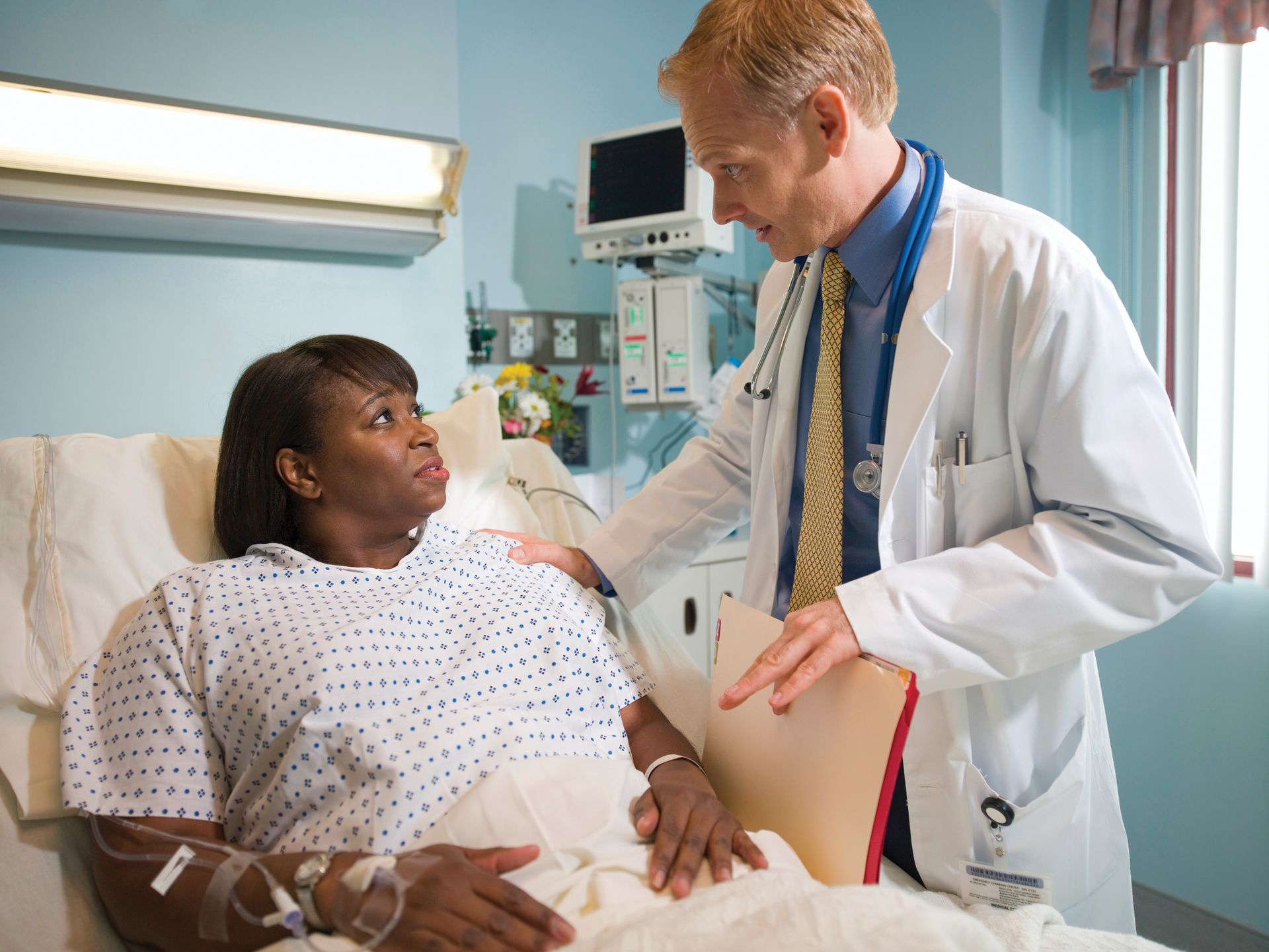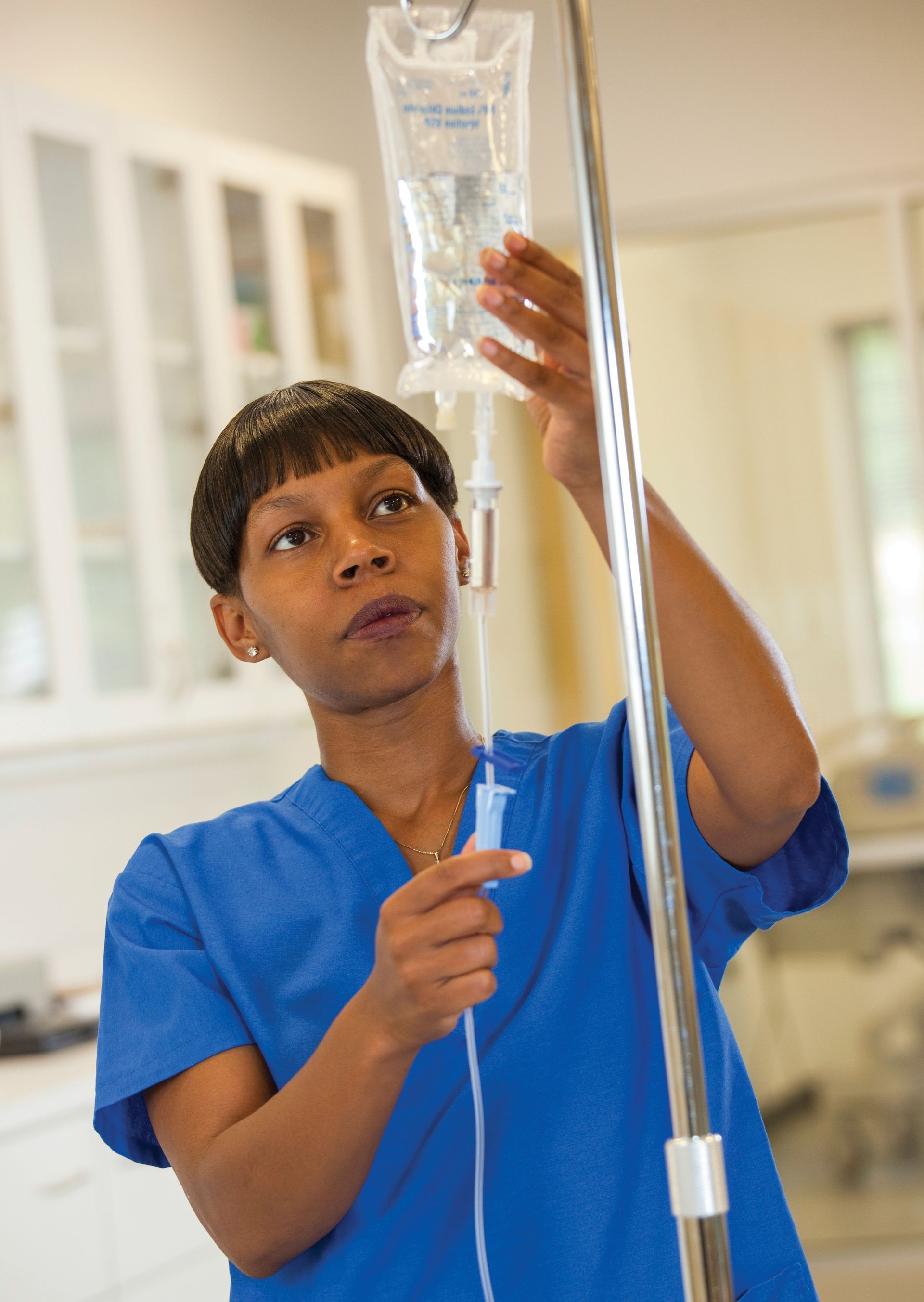Patient Guide
Key Information for Your Stay

Sepsis

Know the Signs and Act Fast
Sepsis is a life-threatening emergency that happens because of an infection. For example, this could be an infection in your skin from a surgical wound or in your urinary tract from a catheter. Without treatment, sepsis can cause organ damage or even death.
When you get any type of infection, your immune system works to fight it. Sepsis happens when your immune system overreacts and hurts your own body. Emergency care can usually help, but treatment must happen quickly.
Know the Signs
Act fast if you think you have sepsis. If you have any of these symptoms or an infection that’s not getting better, tell your healthcare team right away or call 911 from home. Symptoms include:
- low blood pressure or dizziness
- fever, shivering or feeling very cold
- confusion
- shortness of breath
- fast heartbeat
- extreme pain or discomfort
- clammy or sweaty skin
Prevent Infection to Avoid Sepsis
Practice good hygiene during your hospital stay and at home to prevent sepsis:
- Clean hands regularly—Wash your hands or use alcohol-based hand sanitizer throughout the day. Make sure everyone cleans their hands before touching you.
- Keep wounds clean and covered—Let your nurse know if bandages get loose or wet. And don’t let visitors touch your wound.
- Pay attention to tubes—If you see redness or drainage around where tubes go into your body, or if any tube gets loose or comes out, tell your nurse. Ask when tubes can safely be removed.

How to Treat Sepsis
If you have sepsis, your doctor will give you antibiotics for the infection. You may also get oxygen, intravenous (IV) fluids or blood pressure medicine. If you have organ failure because of sepsis, you will need care to keep your organs working, like dialysis for your kidneys or breathing tubes for your lungs.
Remember—recognizing sepsis early and getting treatment right away gives you the best chance of recovery.
Patient Guide Solutions, LLC
All Rights Reserved